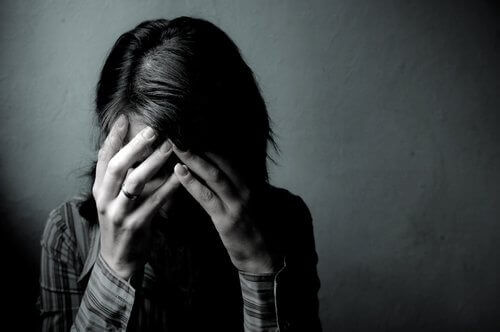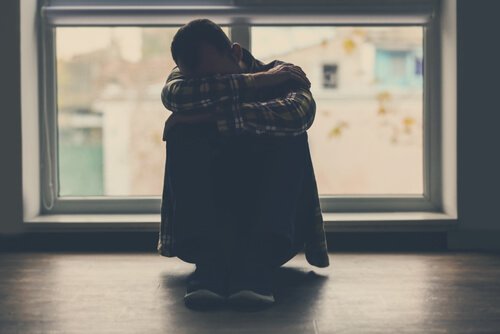Illness and Guilt: What's the Connection?

Illness and guilt is a bad combination that affects a lot of people. When some people face health problems, they also tend to feel guilty. Questions like “Why me?” or “Will I be strong enough?” usually pop up in their minds, leading to emotional problems. They even believe that they got sick because they’re weak.
Guilt is a particular form of fear. If we cultivate it during early childhood, it can block our emotional development, wreaking havoc on our health. For example, self-condemnation, self-invalidation, and a feeling of inadequacy are common in people who blame themselves for their illness.
Additionally, guilt can affect our lives in many ways and can lead to more suffering. For example, it can lead to self-destructive behavior.
Illness and guilt in mental disorders
Mental disorders are conditions that are especially linked to guilt. These conditions aren’t as understood as cancer or multiple sclerosis. Thus, patients who suffer from them don’t tend to get the same support people who suffer from those diseases do.

Like other diseases, people don’t choose to have mental disorders. However, society still doesn’t understand this. Thus, if someone is suffering from a mental condition, their loved ones can react with contempt or fear due to their lack of understanding.
Psychological pain and emotional suffering are less dramatic than physical pain. However, they’re more common and harder to bear.
Psychiatric stigma is perhaps the most significant factor that negatively influences therapeutic research and rehabilitation regarding mental disorders. Likewise, it interferes with access to treatment and adherence to medical prescriptions. Consequently, it hinders an effective social reintegration.
Furthermore, stigma and social exclusion contribute significantly to individual suffering. It may worsen a condition’s prognosis. On one hand, it does so on an individual level, linking people who are suffering from a mental disorder to certain undesirable characteristics or negative stereotypes. On the other hand, it serves as a social construct, which overlaps stereotypes and general social rejection.
“Mental health needs a great deal of attention. It’s the final taboo and it needs to be faced and dealt with.”
-Adam Ant-
Why do sick people feel guilty?
How can a person feel guilty about being sick? How can a cancer patient feel guilty because they were not able to endure treatment? These are very difficult questions. Even so, the fact that emotions are more persuasive than logic in highly emotional situations could help answer them.
Sometimes, this guilt may be justified, as is the case of lung cancer and smoking. However, in many other situations, people who get sick feel awful because they were unable to control what happened to them. In these cases, they become victims of the control fallacy cognitive distortion. Thus, they feel responsible for issues that are really out of their hands.
People who experience this distortion feel responsible for everything and everyone. As a result, they become stressed when there’s something they can’t control. In other words, they feel responsible for anything that happens. Thus, this type of reasoning can make sick people feel responsible. This can lead to them feeling guilty of their illness.

As we can see, illness and guilt tend to go hand in hand. This is especially true regarding mental disorders. Fighting the stigmas society associates them with must should be one of the first priorities of health experts and the people who are affected by these disorders.
This text is provided for informational purposes only and does not replace consultation with a professional. If in doubt, consult your specialist.








